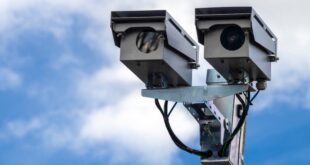Volvo vehicle. Credit rating: Pixabay.
In an unusual pivot, Volvo Cars has actually shelved its enthusiastic objective to market just electrical cars (EVs) by 2030, mentioning slowing down need for totally electrical autos.
The choice notes a considerable change in approach for the Swedish car manufacturer, which had actually placed itself as a leader in the electrification motion within the vehicle sector.
Volvo’s first strategy was vibrant– transitioning completely to battery-powered cars by the end of the years. Nevertheless, with customer rate of interest in pure EVs softening, the firm is currently going for an extra adaptable target. By 2030, Volvo anticipates 90 to 100 percent of its worldwide sales to find from energized cars, that includes both totally electrical and plug-in crossbreeds.
This upgraded target mirrors Volvo’s recommendation of market facts. While the firm stays dedicated to EVs, it currently enables area for a tiny portion of light crossbreeds in its schedule.
” We are practical and adaptable while maintaining an industry-leading placement on electrification and sustainability”, a Volvo firm declaration claimed.
Volvo’s shares drop
The choice comes as the firm’s shares dropped by over 4 percent complying with the statement, and its supply rate has actually gone down 12 percent in the last 6 months.
Crossbreed autos increasing
Volvo’s change highlights an expanding pattern in the vehicle sector– hybrid cars are significantly favored over totally electrical designs. This change is partially driven by the increasing expense of EVs and the slower-than-expected growth of billing facilities, which has actually left lots of customers reluctant to go all-electric.
Currently, 26 percent of Volvo’s item schedule is totally electrical, which is the highest possible amongst costs car manufacturers. Nevertheless, when you consist of plug-in crossbreeds, almost fifty percent (48 percent) of Volvo’s second-quarter sales this year were electrical designs.
In spite of these strong numbers, the wider EV market is encountering difficulties. Tesla, a leader in the area, has actually seen its revenue margins diminish, and chief executive officer Elon Musk has actually recognized that lots of customers are moving in the direction of crossbreed choices.
The deteriorating need for EVs isn’t almost customer choice. Car manufacturers, consisting of Volvo, are coming to grips with macroeconomic difficulties, such as a rate battle in China and brand-new EU and united state tolls on Chinese-made EVs. These aspects are developing headwinds for the sector, with China currently vowing vindictive procedures.
Additional worsening the concern is completion of federal government aids for renewable resource cars, which had actually formerly assisted balance out the greater expense of EV possession. With these rewards running out and oil costs staying fairly reduced, the attraction of totally electrical autos has actually lessened. Volvo, like lots of various other car manufacturers, has actually prompted for more powerful and a lot more constant federal government plans to promote the change to cleaner cars.
Volvo is not the only one in reviewing its all-electric aspirations. Various other significant vehicle suppliers have actually likewise strolled back their hostile timelines for complete electrification. Renault’s chief executive officer, Luca De Meo, lately kept in mind that clients are not yet prepared to totally welcome battery-powered autos, recommending that the sector requires even more time to make the environment-friendly change. On the other hand, German deluxe brand name Porsche has actually downsized its target of offering 80 percent totally electrical cars, while Ford and Fiat have actually likewise revealed worries over whether a 2030 target date is possible.
The roadway in advance for Volvo and EVs
In spite of these difficulties, Volvo is still intending to generate 50 to 60 percent energized cars by mid-decade, a step that might much better place the firm for an ultimate all-electric future when problems boost. The car manufacturer has actually declared its dedication to attaining net-zero greenhouse gas discharges by 2040, according to worldwide sustainability objectives.

 Costa News Spain Breaking News | English News in Spain.
Costa News Spain Breaking News | English News in Spain.





